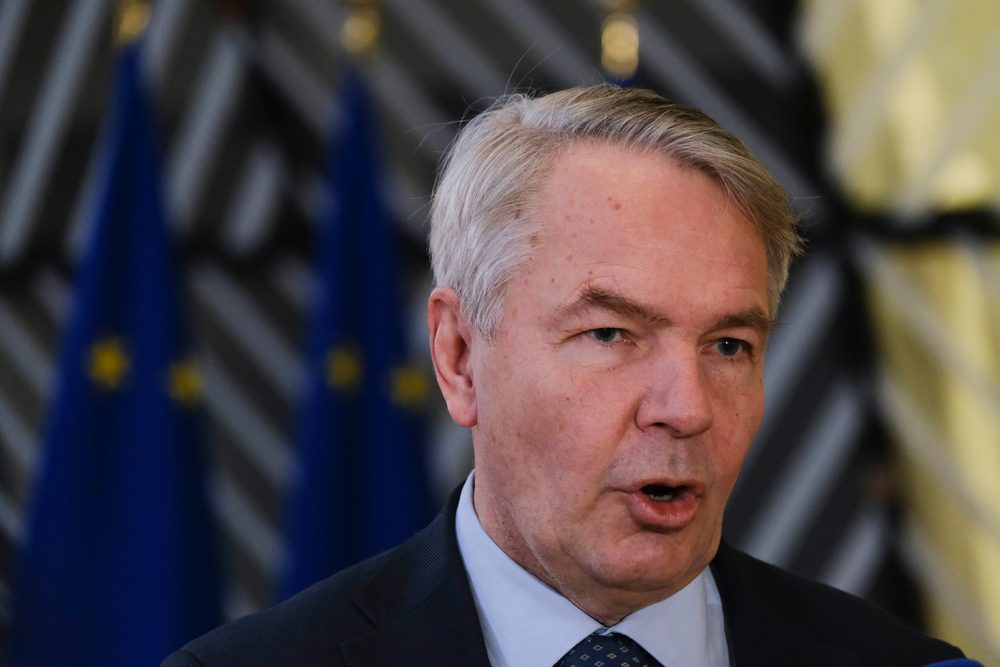
If the current situation persists, Finland must consider joining NATO without Sweden, the Finnish foreign minister announced on Tuesday.
The statement comes as the Turkish government, whose objections are the only remaining obstacle before the Nordic countries’ successful NATO accession, said it will maintain its veto on Sweden’s admission because of the Stockholm protest that involved participants setting fire to the Quran.
Joint NATO membership of the two Scandinavian countries remains the “first option” but “we obviously have to assess the situation, if something has happened which means that in the long term Sweden can no longer move forward,” said Foreign Minister Pekka Haavisto. However, he added, it is still “too early to tell.”
The Nordic countries—both of whom pursued a policy of military neutrality for decades—applied for NATO membership together in May last year, following Russia’s invasion of Ukraine. NATO admission requires the unanimous support of member states; Helsinki and Stockholm have so far acquired the backing of all members except Ankara. Sweden and Finland also wait for Hungary’s ratification, but Budapest has already promised to approve their accession within the next month.
Turkish President Recep Tayyip Erdoğan has so far blocked both countries’ bids and is using his vetoes as political leverage in an attempt to get Sweden and Finland to meet his demands, including the extradition of over 130 political dissidents and members of Kurdish groups labeled as ‘terrorists.’
On Monday, President Erdoğan ruled out giving the green light to Sweden’s NATO admission following a Quran-burning protest that took place over the weekend in the Swedish capital. The controversial scenes happening in Stockholm sparked protests in Turkey and caused outrage within the Turkish leadership.
“Those who allow such blasphemy in front of our embassy [in Stockholm] can no longer expect our support for their NATO membership,” said President Erdoğan in his first official response. “If you do not show respect to the religious beliefs of the Republic of Turkey or Muslims, you will not receive any support for NATO [membership] from us,” he said, calling the events that took place in Stockholm an attack on 85 million Turkish citizens.
The Swedish protest that caused the diplomatic dispute took place in front of the Turkish embassy and with the approval of the Swedish police. The event was organized and carried out by Rasmus Paludan, leader of Hard Line, a Danish far-right political party. Paludan, a dual citizen of Sweden and Denmark, has been involved in a number of Quran-burning demonstrations before.
Swedish authorities defended the actions of Paludan, citing the freedom of expression, but also condemned them as unnecessary and disrespectful. In response to Paludan’s protest, Swedish Prime Minister Ulf Kristersson wrote on Twitter: “Freedom of expression is a fundamental part of democracy. But what is legal is not necessarily appropriate. Burning books that are holy to many is a deeply disrespectful act. I want to express my sympathy for all Muslims who are offended by what has happened in Stockholm today.”
Freedom of expression is a fundamental part of democracy. But what is legal is not necessarily appropriate. Burning books that are holy to many is a deeply disrespectful act. I want to express my sympathy for all Muslims who are offended by what has happened in Stockholm today.
— SwedishPM (@SwedishPM) January 21, 2023
The diplomatic stalemate between Turkey and the Nordic countries will likely remain unsolved for months, as President Erdoğan prepares for a close election in June and his strong stance in the current NATO negotiations helps him rally his electorate. In the meantime, if Ankara would allow Finland to join the military alliance alone, Helsinki will strongly consider the offer given its much closer proximity to Russia. Joint admission, however, remains Helsinki’s preferred option.
